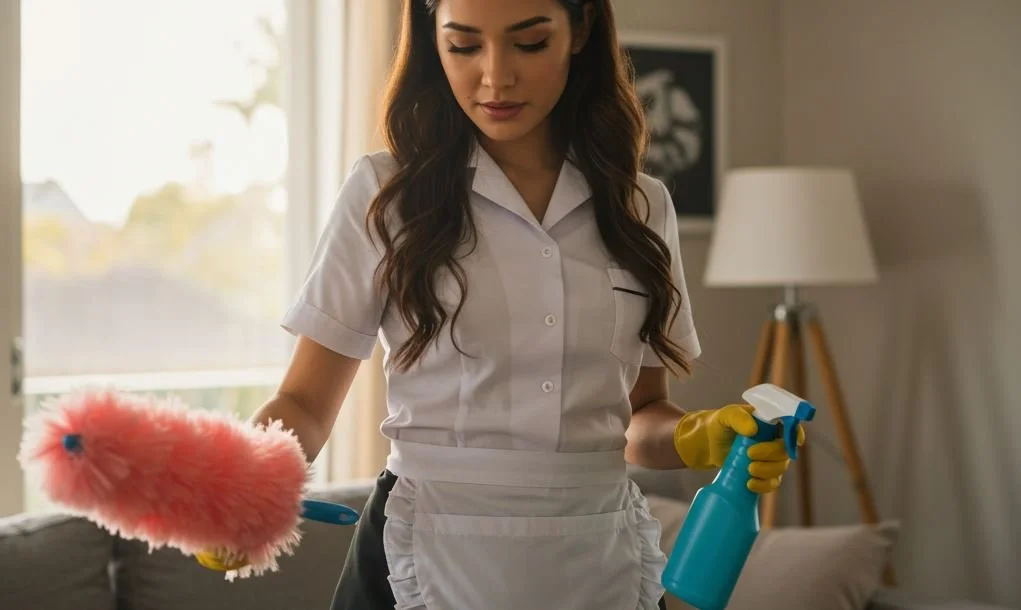Ozone Smell In House (Should I Be Worried?)
Have you ever walked into your house and gotten hit with a strange, sharp, almost like a metallic smell? It’s a little like the air after a thunderstorm—kind of clean, but also a bit too strong.
That’s ozone, and if you’re wondering why it’s in your home, you're not alone.
It’s a curious smell that can pop up unexpectedly, and while it’s not usually dangerous, it’s worth figuring out the source.
In this post, I'll shed some light on what causes ozone smell in house, and how to get rid of it.
Why Does My House Smell Like Ozone?
First things first, it’s important to know that ozone is a gas.
It’s made up of three oxygen molecules (O₃), instead of the regular two (O₂) we breathe. It forms when electrical discharges or ultraviolet light splits regular oxygen molecules which allow them to recombine in this unstable trio.
This is great up in the atmosphere where it protects us from harmful UV rays, but it can be a little overpowering when it shows up inside your house.
Also Read: House Smells Like Skunk
But why does it smell this way in the first place? There are a few common causes:
Overheated Electrical Equipment Or Components
This is probably the most common reason – and potentially the most serious.
When electrical wires, outlets, or appliances overheat, they can produce that telltale ozone smell. It happens because the heat causes small electrical arcs that convert oxygen in the air to ozone.
Pay special attention if the smell seems strongest near:
Electrical outlets (especially if they feel warm)
Light fixtures
Appliances like refrigerators, microwaves, or televisions
Computer equipment
Wall switches
If you notice the smell gets stronger when you use a particular appliance, that's a huge clue.
Don't ignore this! Overheating electrical components can lead to fires if left unchecked.
Air Purifiers And Ozone Generators
Another place ozone often comes from is air purifiers or ozone generators.
These are devices that are designed to clean the air, but some of them actually create ozone as a byproduct. Ozone generators, in particular, are made to purify air by releasing ozone into the air.
The manufacturers claim this helps clean the air, but the EPA and most health experts disagree. Ozone is actually a lung irritant. It might smell "clean," but it's not great to breathe.
Check if you have any air purifiers that mention "ionizing" or "ozone" features. These are often the reasons behind a persistent ozone smell.
Also Read: Metallic Smell In House
Laser Printers And Copy Machines
Got a home office? Your printer might be causing that ozone smell in the house.
Laser printers and copy machines use electrical charges as part of their printing process. This can create small amounts of ozone. This is especially common in older models.
If your printer or copy machine is located in a small room with poor ventilation, the smell might linger longer.
So if you’ve got a lot of printing or copying going on, the smell could be related to these machines. It’s just the way they work!
Outdoor Sources
Sometimes the ozone smell in your home doesn’t even come from something inside.
If you live near industrial areas or places where there’s a lot of car traffic, ozone from the outdoors can make its way inside.
This is more common on hot, sunny days, especially after a thunderstorm, when the air pressure changes and can push ozone from the atmosphere down to ground level.
Ozone from outdoor sources is usually diluted, but it can sometimes make its way into your home, especially if your windows or doors are open.
So, if you’ve been airing out your place and the smell seems stronger outside, that could be part of the problem.
How To Get Rid Of Ozone Smell In House
So now that we know where the ozone smell in your house might be coming from, let’s talk about how to deal with it:
#1 Find And Address The Source
The first step is to find out where it’s coming from.
If the smell is strong near any electronic devices, check to see if something is overheating or malfunctioning.
If it’s your printer or air purifier, consider turning it off for a while or checking to see if it’s producing too much ozone.
You might want to replace ozone-generating air purifiers with HEPA filter models too.
If the smell is coming from outdoor sources, you might need to limit how much fresh air you let into the house. Closing windows and doors during high-ozone times (often on hot or stormy days) can help reduce the smell inside.
Once you've located the culprit, take care of it.
Also Read: Minneapolis cleaning services
#2 Ventilate Your House
Good ventilation can help remove the ozone smell in the house.
Open windows and let fresh air circulate through your home. If it's safe to do so, using fans to push the air outside helps too. A nice cross breeze can work wonders to help push the ozone smell out and bring in fresher air.
If it’s really bad, you might want to leave your windows open for a few hours.
Just make sure you’re not letting in too much outdoor ozone if it’s one of those days when it’s especially high.
#3 Use Some Baking Soda Or Activated Charcoal
Both baking soda and activated charcoal are amazing at absorbing odors. They won't eliminate the ozone directly, but they'll help with the lingering smell.
Place open containers of baking soda around the affected areas. For activated charcoal, you can buy it in filter form or as bamboo charcoal bags specifically designed for odor absorption.
I've had great success with placing these near air vents or in corners of rooms where the smell seems strongest.
Just remember to replace them every few weeks if the smell persists.
#4 Simmering Spices
If you want to add a little something extra to your efforts, you can try simmering some spices like cinnamon or cloves on the stove.
The smell of cooking spices will overpower the ozone smell.
I like to let this simmer for about 30 minutes, adding water as needed. It makes your whole house smell amazing and can help take your mind off that metallic ozone odor.
It’s a simple trick, but it can work wonders, especially if you’ve got guests coming over or just want to make the place feel more comfortable.
Wrapping Up
An ozone smell in your house isn't something to panic about, but it's definitely worth investigating.
If it's coming from electrical equipment, address it promptly for safety reasons. If it's from an air purifier or ozone generator, consider alternatives that don't produce this irritating gas.
Remember that ozone, despite its "clean" smell, isn't great for your lungs. The EPA recommends avoiding exposure when possible, especially for people with respiratory conditions, children, and the elderly.
The good news is that once you identify and address the source, the smell usually dissipates within a day or two with good ventilation.
Your home will be back to smelling normal before you know it!

